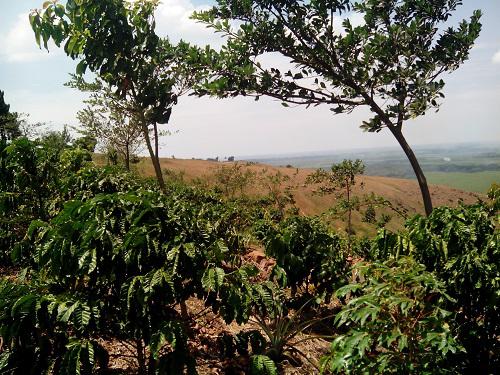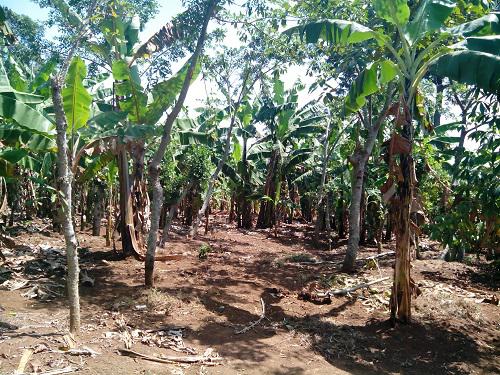Seguya Henry Kizito
Other projects
11 May 2015
Garnering More Support for Conservation of Sangobay Forest Reserve through Cultural Values Approach towards On-Farm Biodiversity Conservation
16 Jan 2018
Replicating Lessons Learnt and Integrating Livelihoods into on Farm Biodiversity Conservation through Cultural Values Approaches
The project seeks to demonstrate how cultural values can be an important tool to conservation if integrated in farming systems. The project will also seek build capacities of communities in conventional research and understanding the linkages between culture, nature and sacred sites.

Ficus spp trees planted ina coffee garden.
Sangobay central forest reserve over time has faced a number of threats despite its importance as a haven for a number of endangered species and important stopover of many migrant fauna. These threats have meant that fauna find farmlands as alternative habitats. It is therefore important to improve the habitat integrity of these forest adjacent farmlands while improving the incomes of the people as well as substituting ecosystem services which people derive from the reserve. The project seeks to use cultural values as a major approach to achieving the project objectives and goal. The project will tap into the indigenous knowledge which people (especially the Baganda who dominate the area) attach to the different species especially Ficus nantalensis and how they can be propagated to increase the habitat integrity of the forest adjacent farms. It is important to note that pro-conservation cultural values have been undermined by the youths, diluted and eroded by the changing cultural landscape which is attributed to external forces like globalisation which in turn affect survival of the species and their habitats.

Ficus spp trees planted in a Banana garden.
The project will achieve its objectives through raising community awareness, training communities in monitoring of biodiversity, tourism promotion, creating community-investor partnerships, planting of culturally and economically significant agro biodiversity trees, research and monitoring to track the various changes as well as promoting institutions for conservation within the target communities. The project will target working with the youths although the elders will be at the fore front of describing the different values attached to the traditional agro-biodiversity trees.
After the project, attitudes of the people towards culture especially for the youth will be positively enhanced through meaningful engagement. Through the proposed income generating activities (constant re-use of tree barks to make bark cloths), the livelihoods of the communities in the project area are expected to improve in a sustainable manner (though after like three years from the beginning of the project). Other indirect monetary use values like firewood, improved soil productivity, wind breaking will be realised and enhanced.
The studies to be conducted during the project will contribute to the body of knowledge as well as equipping communities with different biodiversity research skills like birding which can also used for tour guiding given the tourism potential of the area. The project will equally contribute to filling this knowledge gap since cultural values approach to conservation is still a new and underappreciated.